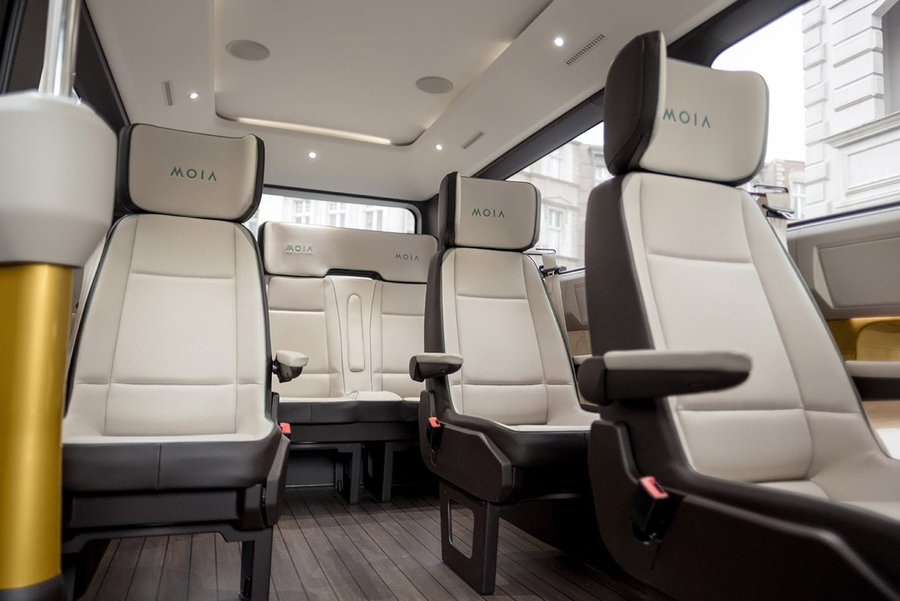VW takes on Uber and Lyft with ride-pooling EV minibus

VW's new MOIA "mobility services" division on Monday announced plans for a fully electric international ride-pooling service that aims to remove 1 million cars from European and U.S. cities by 2025.
MOIA will next year launch 200 of the six-seater buses in Hamburg, Germany's second most-populous city, offering passengers fast internet access and USB ports to charge phones and tablet computers, MOIA Chief Executive Ole Harms said at a technology conference.
Berlin-based MOIA will expand its Hamburg-based electric-bus fleet to 1,000 units within three years and target other cities from 2019, Harms said, declining to give further details.
"We will return the cities to the people," Harms said, adding the ride-pooling plans will help to significantly reduce urban congestion at prices which are cheaper than taxi rides.
Harms declined to comment on prices and the economics of the plans, though he said the Hamburg project would initially be running at a loss.
But the growth of ride-hailing services and the prospect of driverless vehicles will encourage people to switch to paying for individual journeys rather than buying their own cars, he predicted.
"The market is unlimited," Harms said.
Struggling to draw a line under its 2015 diesel emissions test-cheating scandal, VW created MOIA a year ago with a view to it generating a substantial share of group revenues by 2025 as it invests billions of euros in electrification, ride-hailing and self-driving cars.
MOIA will draw on VW's modular platforms to build the new electric bus which can run for about 300 kilometres (186 miles) on a single battery charge and needs about 30 minutes to recharge to 80 percent of full capacity, Harms said.
